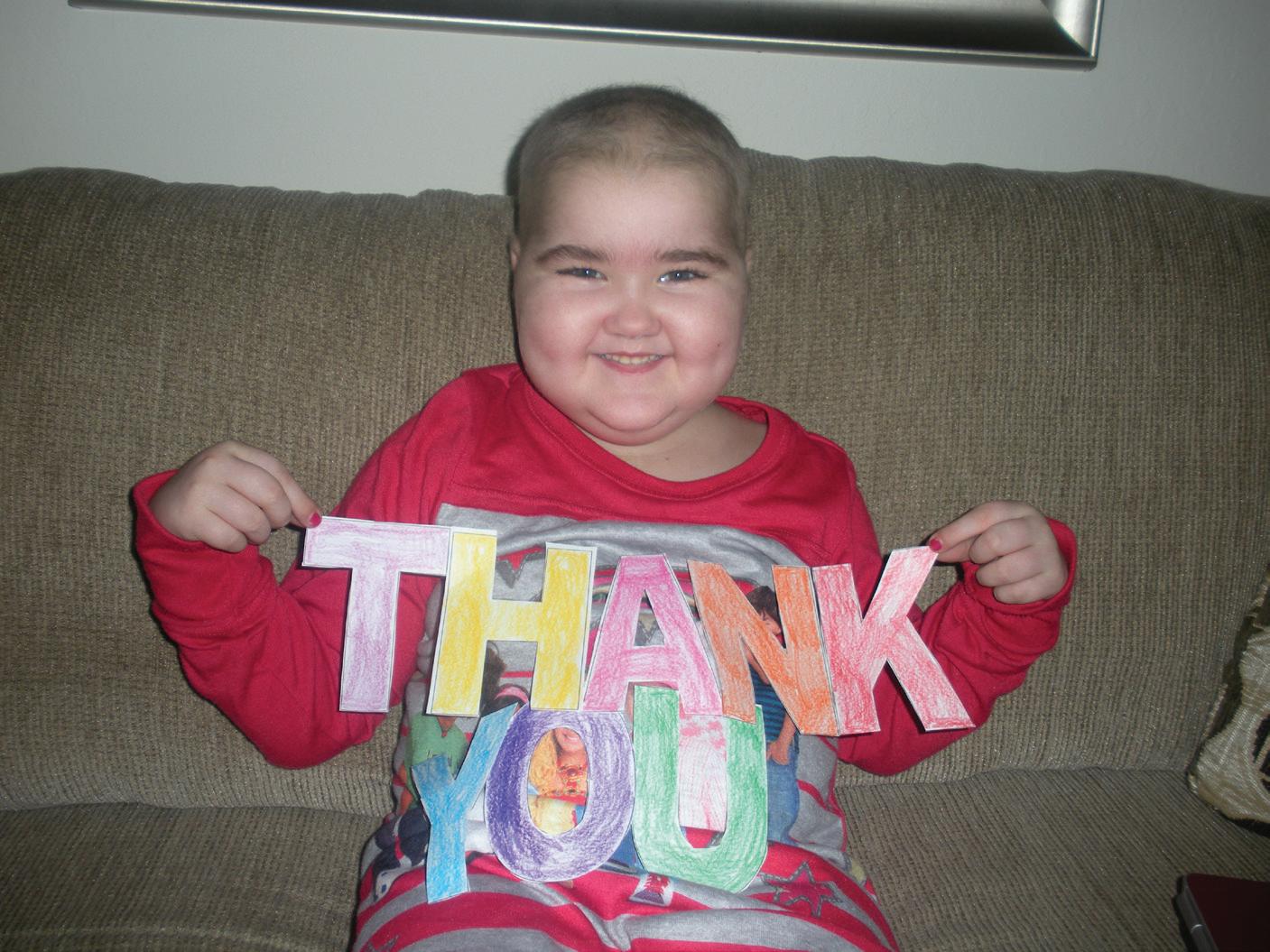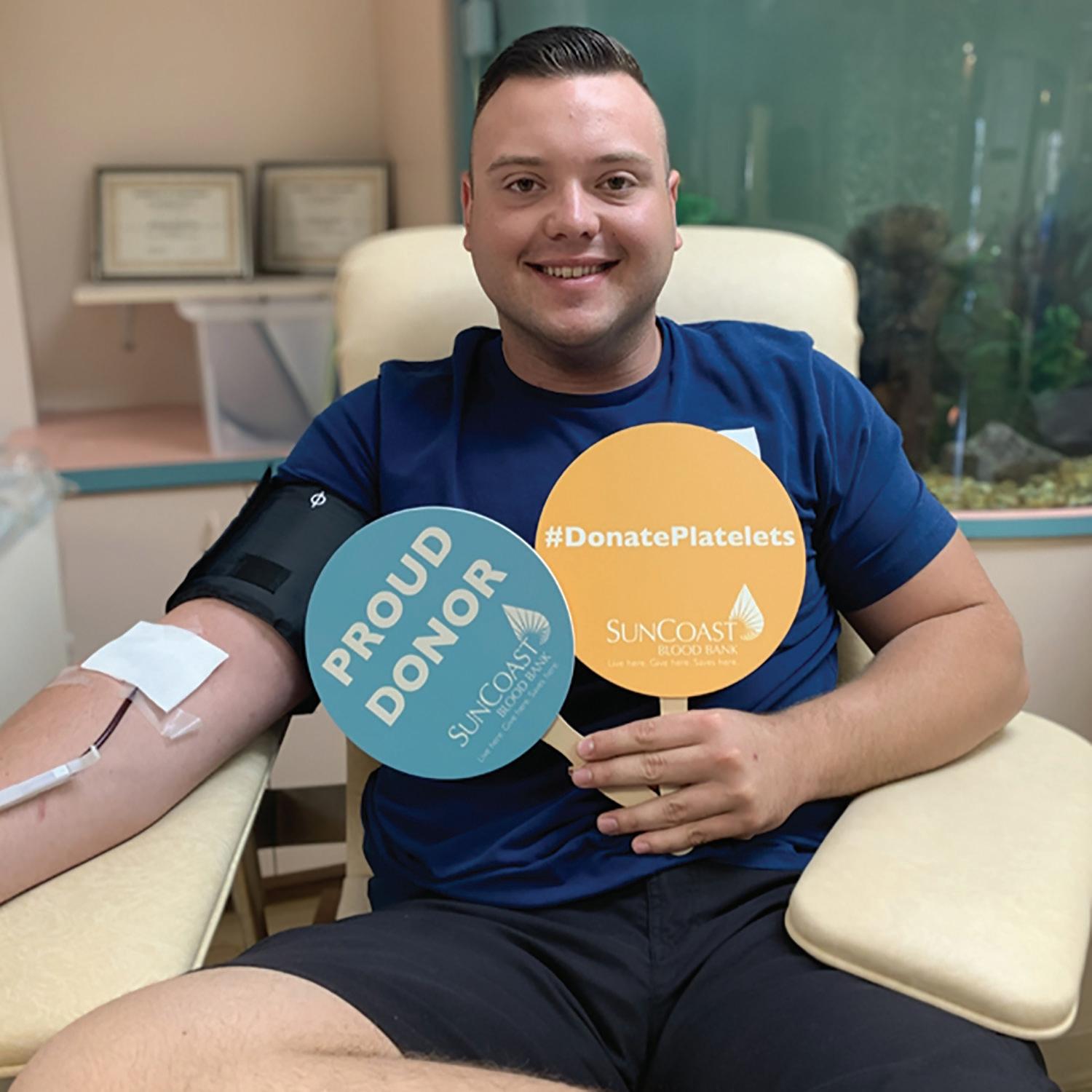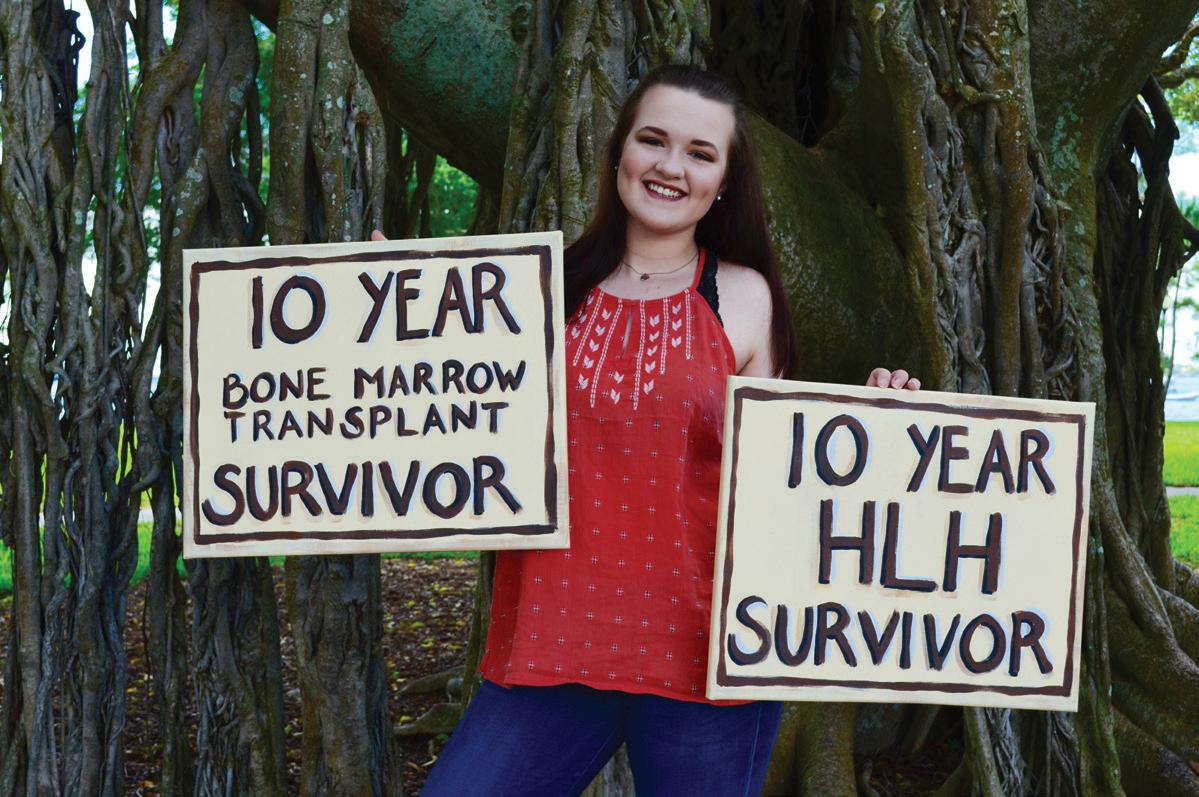
4 minute read
THE NEXT GENERATION OF DONORS
Cultivating a younger and broader generation of active donors.
Many don’t understand blood to be a very perishable product with a very short shelf life. Much like food in the refrigerator, it will expire in just 42 days. Platelets are good for a mere five days. “When someone donates, it’s already got a clock ticking,” says SunCoast CEO Scott Bush. “And the demand for blood and platelets is growing tremendously here—there really is an urgent need to increase the number of donors.”

Bush expects the need to grow even more in the next two years when Sarasota Memorial opens its Cancer Institute, and so SCBB calls upon the community now more than ever to become educated and inspired on what a quick and painless visit can do to positively impact many lives. “With the rate of development in this area, there are more people needing treatment down here, especially in the wintertime,” he says. With seasonality coming into play, winter poses a higher demand because of retirees migrating from up north to escape the cold. “If they need a hip replacement, they’re not likely to do it up there,” says Bush.
“You don’t want to go outside with a new hip or knee and trip or slip on the ice. They come down here to get treatment, and that more than doubles the need for blood and platelets locally in the winter.” According to Bush, even though there are more people moving to the area, only 3% of those people will end up donating. “It’s staggering when you realize that only 3% of our population is supplying 100% of the blood products for the community.” And when there’s only a sliver of people donating, there is never a large enough supply on hand. “We rarely ever have products that get to their 42-day shelf life,” he says.

And of that 3%, the average age is 54 (and older for this area). Unfortunately, in more cases than not, many do not become donors until a loved one or someone they know has been diagnosed with a severe illness or been in a serious accident. For Kevin, a local Sarasotan, his mother died of cancer when he was just 13. He watched his mother go through treatment, which included many blood products. At a very early age he understood the importance of blood donation and started donating when he was 19 years-old. He has not stopped since. Kevin comes in to SCBB faithfully every two weeks to donate platelets, which are vital in the treatment of cancer.

Kevin has made 697 donations and he is a 161-gallon donor. To invigorate more lifelong donors like Kevin, who has been able to save thousands of lives over the years, SCBB continually looks to educate and engage high school and college students. The nonprofit hosts mobile blood drives throughout the school year and also offers scholarships to encourage continued participation.
Students who donate three times their senior year, or volunteer 30 hours, are eligible to apply. To date, more than $275,000 has been awarded to students from 14 local high schools. “We rely heavily on this age group to supply blood. They are great candidates because they are young and healthy. If they begin donating as a teenager, like Kevin, they are likely to become life-long donors,” says Bush.

Major incidents that are heavily publicized, such as the mass shootings in Las Vegas and Orlando, or devastating natural disasters such as a hurricane bring donors out. “After 911, there was a line out the door. It was great how many people responded and wanted to help,” says Bush. “But we shouldn’t have to have mass tragedies to feel inspired to donate. There are elderly, injured and sick people in the hospital every day that need transfusions.” Cancers, blood disorders, rare diseases, aneurysm or sustaining someone through surgery after a car accident so they don’t perish on the table, are all instances where blood transfusions save lives.
“It seems everyone is impacted by cancer in some way, be it a family member, friend or coworker,” he says, noting over half of SCBB’s platelet donations are needed by patients undergoing chemotherapy. “Chemo just wipes you out. It kills the cancer cells, but it also damages the healthy cells,” says Bush. “So, we need to replace those blood products so patients can function and survive. This aspect of the need for blood is not publicized like mass tragedies, but it’s the everyday reality. Cancer strikes everyone from infants to grandparents and many would not survive without blood products. Quite simply, there is no substitute for human blood when needed for treatment.”
This spread, left to right: Alexander needed 70 units of blood when he was accidentally shot in the chest by a friend; SCBB Donors




